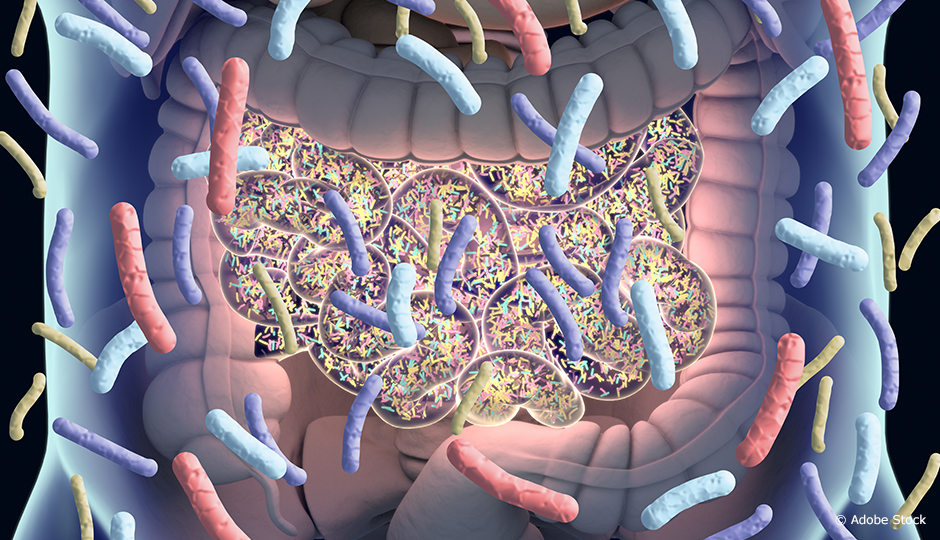
Certain bacteria in the digestive tract could boost the efficacy of cancer immunotherapy. According to Dr. Bertrand Routy, oncologist and director of the Laboratory of Immunotherapy and Oncomicrobiome at the CHUM Research Centre, the composition of patients’ intestinal microbiome defines their response to the treatment, which strengthens the immune system to help it attack cancerous cells.
In lung and kidney cancer patients in particular, immunotherapy doubles life expectancy, but the approach is less effective in some individuals. Intrigued, Dr. Routy took a look at fecal matter. His meta-analysis of 37 studies of 12 000 patients revealed that taking antibiotics prior to immunotherapy changes the intestinal microbiome and increases the rate of cancer mortality.
The composition of patients’ intestinal microbiome defines their response to the treatment.
To validate the signature of beneficial bacteria, he launched a research platform to study the microbiomes of some 100 lung cancer patients who were scheduled to begin immunotherapy. Using a range of techniques, including metagenomics, the physician was able to pinpoint the bacteria that increase the response to immunotherapy in patients’ stools.
As part of another project—the first Canadian fecal microbiota transplant study in cancer patients—the researcher and his colleagues gave 11 patients with metastatic melanoma a cocktail of stool capsules. Though still preliminary, the results seem promising.
Dr. Routy therefore believes that the microbiome could constitute a bioindicator to predict a patient’s response to immunotherapy.
He hopes that it will be possible, within two to five years, to sequence the intestinal microbiome of patients to identify those who are likely to have a positive response to the treatment. The patients who are not could then take prebiotics or capsules of intestinal bacteria or eat a personalized diet to supplement their microbiome.
Dr. Routy has even imagined bacterial prevention: determining a patient’s odds of getting cancer based on microbiome make-up in order to prevent instead of treat.
